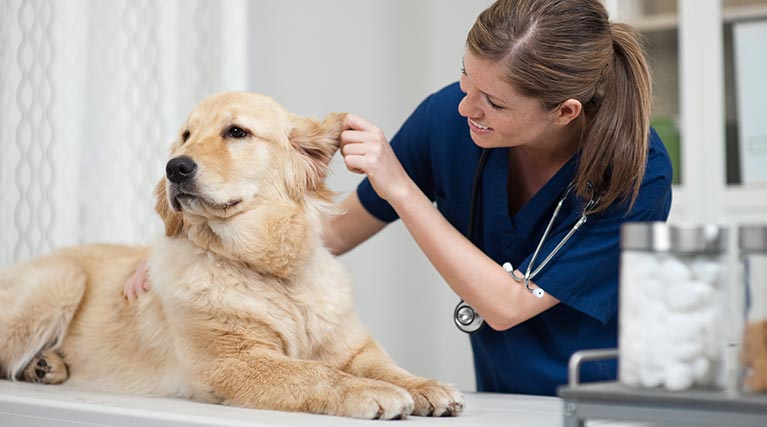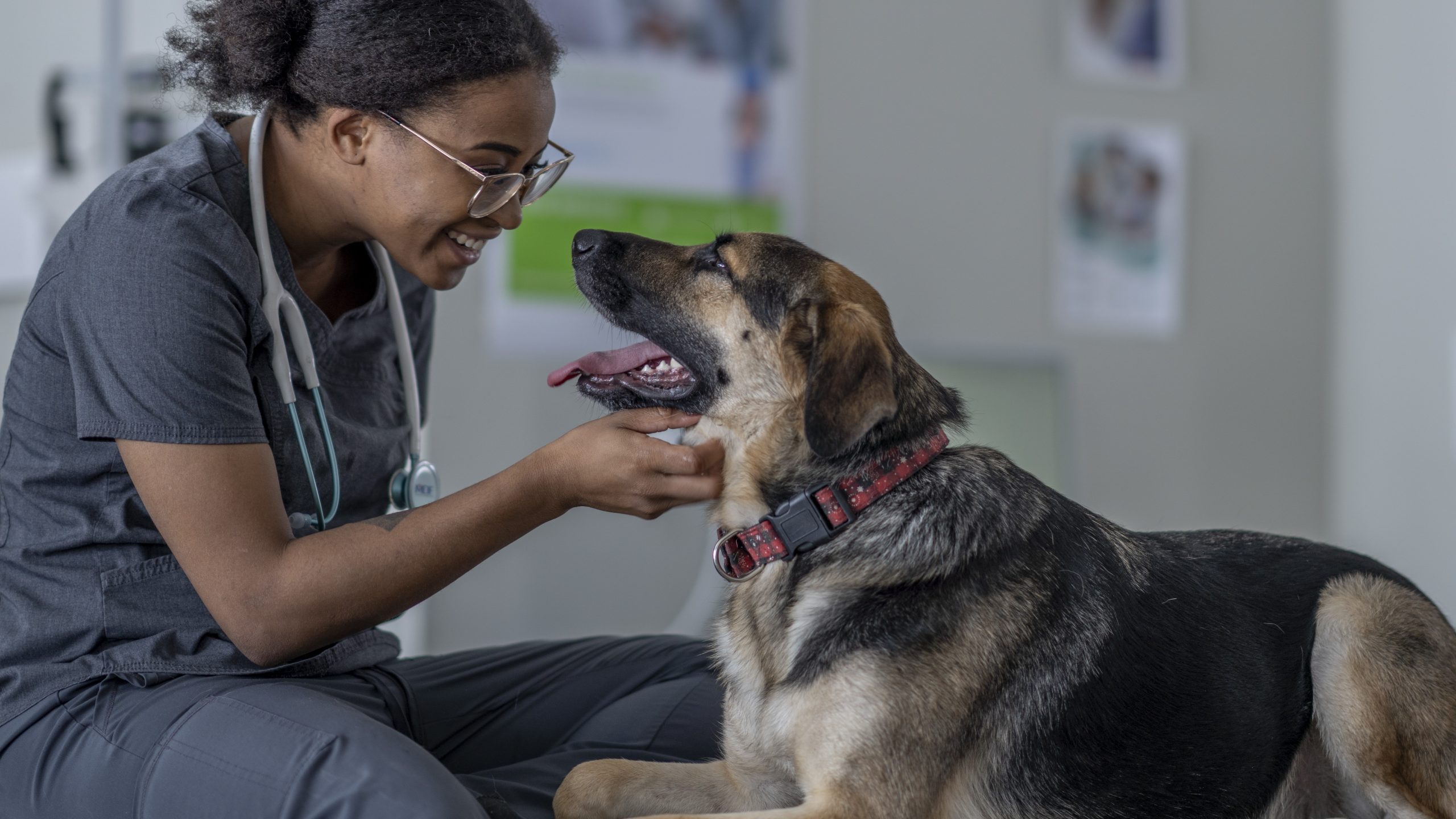Vaccination Standards From Your Relied On Vet
Vaccination guidelines given by your trusted veterinarian play a crucial function in protecting your family pet's health and wellness. Core vaccinations are fundamental for all animals, while non-core injections can be customized to particular way of lives and ecological exposures. Understanding the nuances of inoculation timetables, which start as early as 6 to 8 weeks, is important for optimal defense. Additionally, attending to usual misconceptions surrounding vaccinations can additionally boost pet owners' self-confidence in these safety nets. As we discover these critical elements, it becomes increasingly clear why regular assessments with your vet are indispensable for informed decision-making.

Significance of Vaccinations
Vaccinations play a crucial function in safeguarding family pets against a series of avoidable illness. By promoting the immune system to recognize and deal with particular virus, injections substantially reduce the occurrence of infectious conditions that can impact a pet's wellness and longevity. Not just do vaccinations safeguard individual animals, however they also add to herd immunity, therefore decreasing the general prevalence of illness in the pet populace.
Timely vaccinations aid to minimize the spread of conditions such as rabies, parvovirus, and distemper, which can have extreme consequences for both humans and pet dogs. Inoculations are frequently a need for boarding facilities, grooming services, and dog parks, making them crucial for those who want to mingle their pet dogs.

Core Injections for Animals
While the specific inoculation requirements of pet dogs can differ based upon individual variables, core injections are generally suggested to shield versus the most serious and usual illness (Pet Vaccinations). Core injections are those deemed necessary for all pet dogs, no matter of their lifestyle or geographical place, as they guard against possibly fatal and extremely transmittable health problems
For pet dogs, the core vaccines include those for canine distemper, parvovirus, adenovirus (liver disease), and rabies. Canine distemper is a viral illness that impacts the breathing, stomach, and nerves. Parvovirus is recognized for creating serious gastrointestinal health problem, specifically in puppies. Adenovirus can result in liver disease, while rabies is a zoonotic illness that postures a threat to both animals and people.
In cats, core vaccines include feline panleukopenia, feline calicivirus, feline herpesvirus (rhinotracheitis), and rabies. Feline panleukopenia is a highly infectious viral condition that affects the immune system and intestines. Calicivirus and herpesvirus are significant contributors to upper breathing infections in felines, while rabies continues to be an important worry for public wellness.
Seek advice from your vet to ensure your pets get their core inoculations on timetable.
Non-Core Vaccines Explained
Non-core vaccinations are customized to resolve specific risks connected with an animal's environment, way of living, and exposure to certain conditions. Unlike core vaccines, which are universally advised for all pet dogs, non-core vaccinations are considered based on private go to website situations. These vaccines are particularly essential for pet dogs that might come across unique pathogens due to their geographical area, traveling routines, or activities.
Examples of non-core vaccinations consist of those for Bordetella bronchiseptica, which is linked to kennel cough, and Lyme condition, brought on by ticks. Animals that frequently connect with other animals, such as those in boarding centers, dog parks, or brushing environments, might gain from Bordetella vaccination. Similarly, if you stay in a location where Lyme disease is prevalent, immunizing versus this disease can be a sensible selection for outdoor-loving dogs.
Various other non-core vaccines may include those for leptospirosis, canine flu, and feline leukemia, depending upon the specific danger factors present. It is important to have a thorough conversation with your vet concerning your animal's lifestyle and the potential requirement for these vaccinations, guaranteeing a customized vaccination technique that ideal secures your hairy good friend.
Vaccination Arrange Introduction

As family pets develop, it is very important to comply with the recommended booster inoculations. Veterinarian Enterprise. For grown-up pets, core injections are usually given each to 3 years, depending upon the specific injection and local regulations. Non-core vaccinations might be recommended based upon lifestyle factors and local condition frequency, demanding a tailored strategy
Normal vet check-ups are important for updating inoculation routines. Your vet can supply advice on one of the most proper immunizations for your pet dog, factoring in age, health status, and environmental threats. By staying aggressive and notified, pet dog proprietors can ensure their hairy buddies obtain efficient and prompt inoculations, thus guarding their health and wellness throughout their lives.
Usual Myths Concerning Vaccines
Mistaken beliefs concerning pet inoculations can bring about complication and hesitation amongst animal proprietors regarding the immunization procedure. One common misconception is that vaccines are unnecessary for interior pets. While it holds true that indoor family pets encounter lower dangers, they are not totally immune to illness, as pathogens can be introduced via various methods, including human clothing and other family pets.
Another misunderstanding is that vaccinations can cause the illness they aim to stop. In truth, most injections contain suspended or undermined pathogens, which can not cause illness in healthy pets. Some pet dog owners also believe that their animals ought to not be immunized if they are currently healthy and balanced; nonetheless, inoculations are an aggressive step that aids prevent the onset of disease.
Furthermore, numerous pet dog proprietors are afraid that vaccinations will certainly bring about long-lasting wellness complications. While adverse effects can occur, they are generally moderate and short-lived. The benefits of vaccination-- securing pet dogs from possibly serious illness-- much exceed the dangers. Recognizing these typical misconceptions is vital for responsible animal ownership and ensuring the health and safety and security of your hairy friends. Always consult your veterinarian for exact info tailored to your pet's certain requirements.
Conclusion
In recap, adherence to vaccination standards is critical for making certain the wellness and durability of pet dogs. Core vaccinations give necessary protection versus major diseases, while non-core injections address details risks based upon specific lifestyles. Developing an extensive inoculation schedule, together with normal veterinary check-ups, assists in optimal health and wellness monitoring. Dispelling typical misconceptions surrounding inoculations better enhances the significance of educated decision-making in animal treatment. Eventually, a proactive approach to vaccinations helpful site is essential for maintaining animal well-being.
Not just do vaccinations safeguard private pets, but they also add to herd resistance, therefore reducing the overall occurrence of illness in the pet dog populace.
Misunderstandings regarding family pet inoculations can lead to confusion and unwillingness amongst pet dog proprietors pertaining to the booster shot process. While it's true that indoor family pets face reduced dangers, they are not entirely immune to conditions, as pathogens can be presented via numerous methods, consisting of human apparel and various other pets.
Some animal owners also believe that their animals ought to not be vaccinated if they are already healthy; however, vaccinations are a proactive step that assists stop the start of health problem.
The advantages of inoculation-- securing pets from potentially life-threatening diseases-- much outweigh the dangers.
Comments on “Secure Your Pet's Future with Prompt Pet Vaccinations from an Expert Vet”